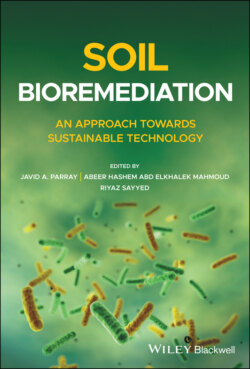Читать книгу Soil Bioremediation - Группа авторов - Страница 36
2.6.1.1 Adsorption
ОглавлениеThe adsorption of orthophosphate‐pesticides in soil and the resulting decrease in fluidity are important factors that influence their behavior in nature. The degree of adsorption as well as the rate and extent of final degradation are influenced by several factors including solubility, volatility, charge, polarity, molecular structure, and pesticide size. The process of soil particle adsorption can prevent degradation of pesticides by separating the pesticide from the enzyme that degrades it or by enhancing the degradation process. Abiotic hydrolysis degradation improves the adsorption process. Conversely, volatilization or leaching following adsorption leads to a reduction in the loss of pesticides. Various physical and chemical forces in the process of soil particle adsorption include van der Waals forces, dipole–dipole interactions, hydrogen bonds, and ions replacement. However, there is less information available for the adsorption of ionizable pesticides and extensive studies are needed to analyze the background mechanisms to predict the nature of pesticide interactions with the soil, as these phenomena may affect other processes [126, 127].
